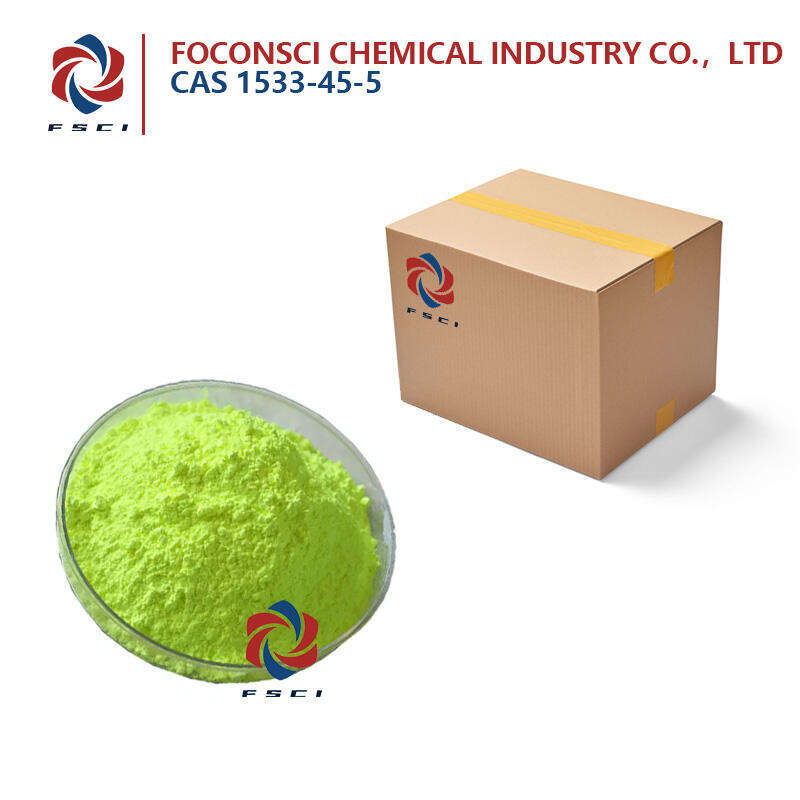Introduction to Fluorescent Brighteners
Fluorescent brighteners, better known as optical brighteners or fluorescent whitening agents, have changed the marketing of consumer goods to the more appealing level. Such optical additives can be found in almost all detergents and a wide range of commercial products. These enhance the apparent brightness or whiteness of materials.
Mechanism of Action
In this case, fluorescent modifiers do not work through a complicated procedure. Following topical treatment of such substances on a particular surface whereby the substances will be termed as the fluorescent compounds, they will absorb ultraviolet light which is otherwise invisible and redirect it as light of blue emission. . Such blue light emitted supra adds on the excessive yellow greens in most materials as bright dullness neutralization. Therefore, it is a product that can attract the eye due to its increased clarity and strength.
The performance of Foconsci Chemical Industry Co., Ltd. fluorescent brighteners is conditioned by the substrate used and the actual components. Numerous chemical groups of fluorescent brighteners stilbenes, coumarins, biphenyl use different combinations of these components and have specific properties aimed for application in textiles, papers, plastic materials, and other industries.
Applications Across Industries
Textiles and Laundry Detergents
In the textile market, fluorescent enrichment agents are commonly used for the purpose of adding a bright and clean appearance to the fabric. Brightening elements are usually incorporated into laundry and fabric softener products that are effective in eliminating visible deterioration of the clothes over time. So, particularly, with the use of brightening agents, bleached textiles have been made brighter but in addition to that, colored fabrics have been made more intense.
Paper Industry
In the same way, for fluorescent brighteners, such spheres as the development of the paper industry could not remain unaffected. The whiter, brighter, and more germ-free the paper is, the more the customers would prefer it, especially for office paper and other printing or packaging papers. The heightened images, printed on this paper, specifically in advertising, periodicals, and other chromium materials appear to enhance the aspired depth of image contrast and text readability.
Plastics and Polymers
There is also a place for fluorescent brighteners in the plastics industry. As well these agents make the plastics more attractive when added into the polymer, by ensuring that the plastic products do not have unsightly nonrepeat surfaces. This is especially very important in consumer goods industries, packaging industries and even in electronic devices where appearance of a product determines the acceptability and brand loyalty of the consumers.
Environmental Impact and Safety
Though fluorescent brighteners enhance product appearance, it is important to emphasize environmental safety over beauty. Eco-friendly fluorescent brighteners are being actively researched, with the aim to overcome the negative side effects of these agents and retain the same positive visual features.
As for safety, attempts have been made by the Environmental Protection Agency (EPA) and European Chemicals Agency (ECHA) to formulate safety guidelines with regards to use of fluorescent brighteners in consumer products and/or formulations containing these products. Such laws restrict the percentages of the products with fluorescent brighteners, because of safety concerns over the health of the people who are likely to consume the products.
Future Prospects and Innovations
Progress in the field of fluorescence allows us to consider the next generation of optical brightening agents. Studies involve the search for new compounds and smart efficient application of these agents. There are prospects for manufacturers looking to design new types of nanotechnology-based fluorescent brighteners and even biodegradable alternatives without compromising on functionality but minimizing adverse effects on the environment.
There are also possibilities of creating intelligent fluorescent brighteners that would respond to light by changing their states. For example, clothes could become brighter or change color depending on how well-lit they are enhancing the functional decorative properties of the products.
Conclusion
Fluorescent brightening agents have improved the aesthetics of a wide range of products across different sectors. Absorption and re-emission of light gives materials the glistening more appealing looks which these agents are employed for. The same technology changes with newly economic and environmental considerations. The Foconsci Chemical Industry Co., Ltd. fluorescent brighteners and their formulations and applications would keep on changing to the direction where the enhancement of the visual aesthetics of the end consumer goods will still be the order of the day. In a world where most products’ quality is measured using the way it looks; fluorescent brighteners have had and continue to have a major impact in determining and even steering the consumers’ tastes and preferences.


 EN
EN
 AR
AR
 BG
BG
 HR
HR
 CS
CS
 DA
DA
 NL
NL
 FI
FI
 FR
FR
 DE
DE
 EL
EL
 HI
HI
 IT
IT
 JA
JA
 KO
KO
 NO
NO
 PL
PL
 PT
PT
 RO
RO
 RU
RU
 ES
ES
 SV
SV
 TL
TL
 IW
IW
 ID
ID
 LV
LV
 LT
LT
 SR
SR
 SK
SK
 VI
VI
 HU
HU
 TH
TH
 TR
TR
 GA
GA
 CY
CY
 KA
KA
 LA
LA
 MN
MN
 KK
KK
 LB
LB


